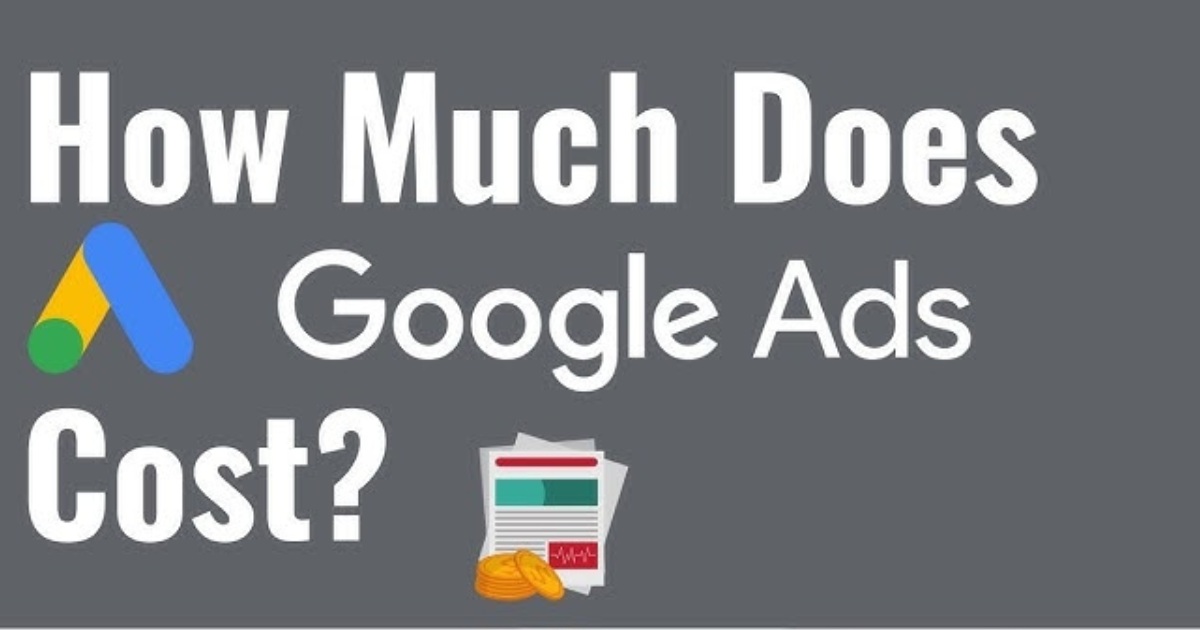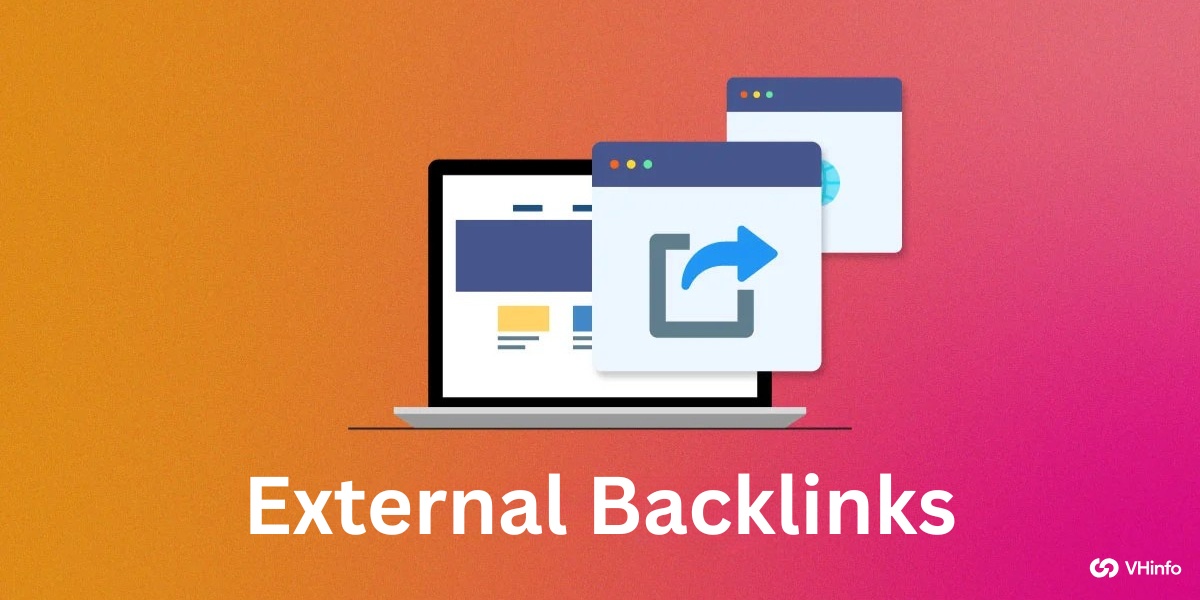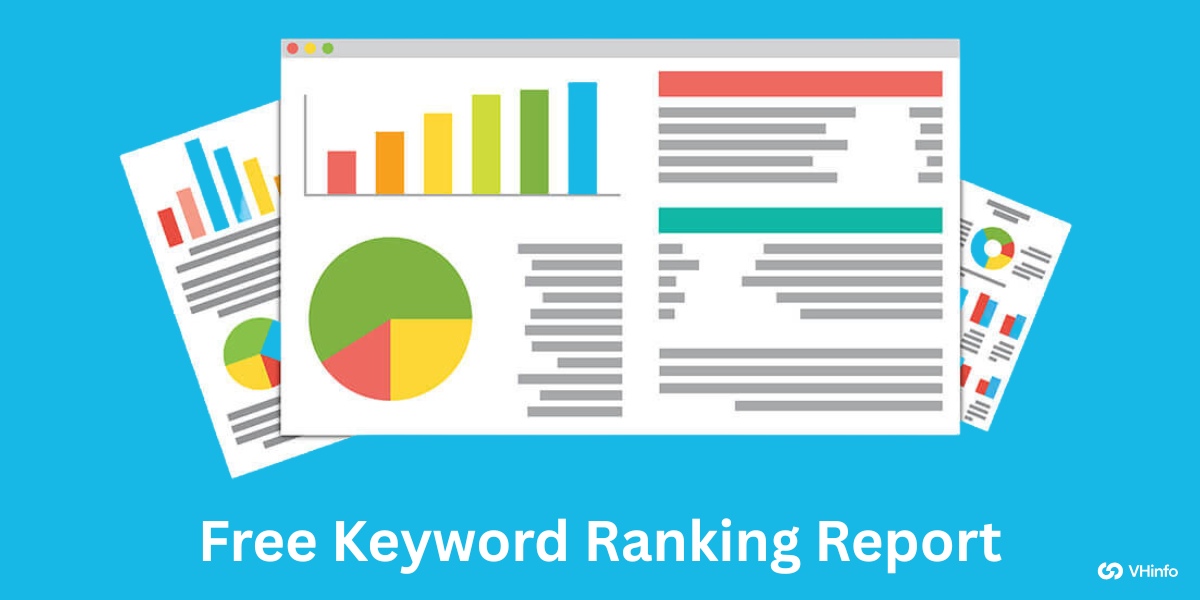Google Ads is one of the most popular online advertising platforms, enabling businesses to reach their target audience and drive conversions. However, the cost of Google Ads can vary significantly depending on numerous factors.
In this comprehensive guide, we’ll dive into the world of Google Ads pricing, exploring the key factors that influence costs, average CPCs across industries, and strategies to optimize your ad spend for the best ROI.
How Much Does Google Ads Cost Actually?
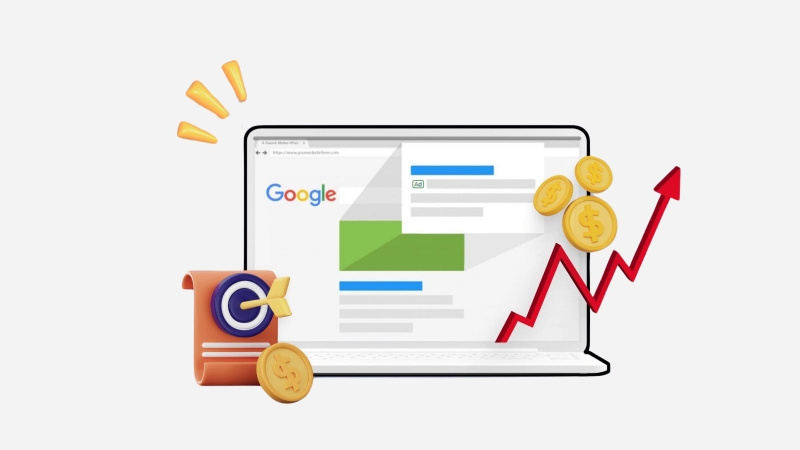
The cost of Google Ads can range from a few cents to over $50 per click, depending on your industry, targeting, and competition.
On average, small businesses spend between $1,500 to $8,000 per month on Google Ads, while mid-size companies may spend $7,000 to $30,000, and large enterprises can invest upwards of $50,000 to $250,000+ on their Google advertising campaigns.
What Factors Influence the Cost of Google Ads?
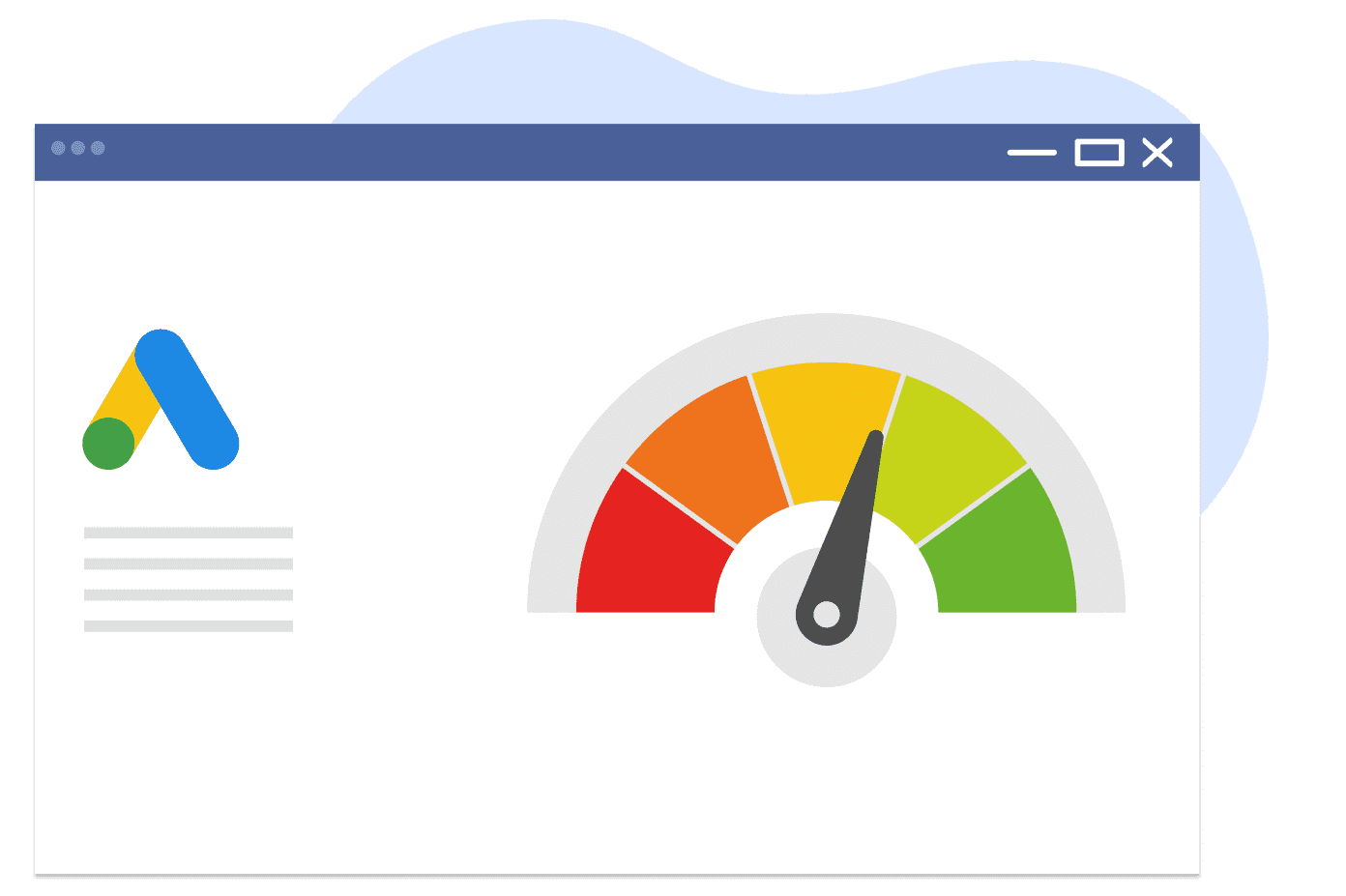
Several key factors impact your Google Ads costs, including:
- Industry: Your industry plays a significant role in determining your Google Ads costs. Highly competitive industries like legal services, real estate, and insurance tend to have higher CPCs due to increased competition for keywords.
- Ad Type & Campaign Strategy: The type of ad you run and your campaign strategy also affect your costs. Search ads typically have higher CPCs than display ads, as they target users actively searching for your products or services.
- Bidding Strategy: Your bidding strategy, such as cost-per-click (CPC), cost-per-impression (CPM), or cost-per-acquisition (CPA), influences your ad spend. Choosing the right bidding strategy based on your goals is important for managing costs.
- Schedule: Running ads during peak hours or days can result in higher costs due to increased competition. Adjusting your ad schedule can help optimize your budget.
- Device Targeting: Targeting specific devices, such as mobile devices or desktop, can impact your costs. Mobile ads often have lower CPCs compared to desktop ads as per google adwords.
- Trends: Seasonal trends, holidays, and current events can affect your Google Ads costs. Increased demand during these periods can lead to higher CPCs.
- Campaign Management Fees: If you hire a professional PPC agency or use PPC management software, you’ll need to factor in additional costs for their services.
How Google Determines Your CPC?
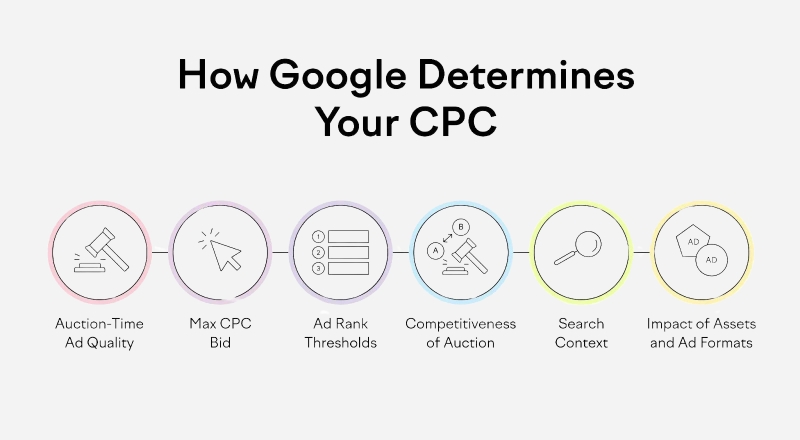
Google uses a complex algorithm to determine your CPC, considering factors such as:
- Auction-Time Ad Quality: Your ad’s relevance, click-through rate (CTR), and landing page experience influence your ad quality score, which impacts your CPC.
- Max CPC Bid: Your maximum CPC bid sets the upper limit for how much you’re willing to pay per click. This is the maximum amount you will be charged per click.
- Ad Rank Thresholds: To enter the ad auction, your ad must meet certain ad rank thresholds based on factors like ad quality and competition.
- Competitiveness of Auction: The number of advertisers bidding on similar keywords affects the competitiveness of the auction and your CPC.
- Search Context: The user’s search query, location, device, and time of search provide context that influences your ad’s relevance and CPC.
- Impact of Assets and Ad Formats: The quality and relevance of your ad assets, such as ad copy and extensions, can impact your ad rank and CPC.
How Does Budgeting Work With Google Ads Costs?

- Daily Average Budgets: Google Ads allows you to set an average daily budget, which is the average amount you’re willing to spend per day over a month. This gives you flexibility in your daily ad spend while maintaining a maximum monthly spending limit on your Google ads account.
- Spending Limits: You can also set a monthly spending limit to ensure you don’t exceed your allocated budget. Once you reach your spending limit, Google will pause your ads until the next month.
How to Manage & Optimize Your Google Ads Budget?
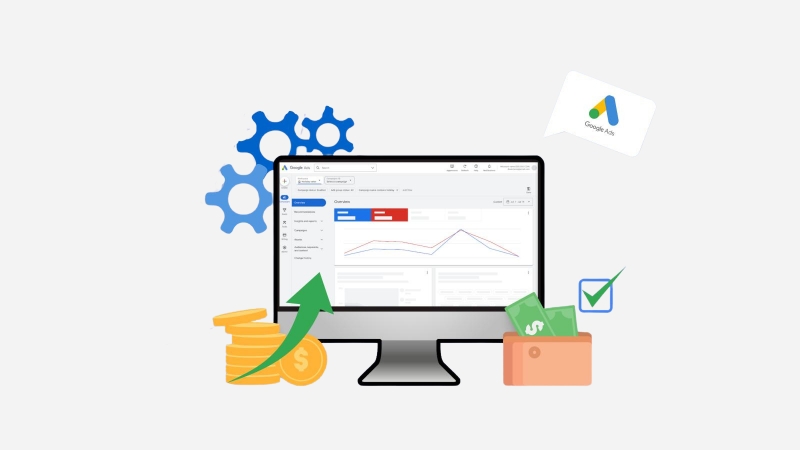
To get the most out of your Google Ads budget, consider these optimization tips:
- Create a Daily Budget: Set a daily budget that aligns with your marketing goals and overall ad spend. Monitor your costs regularly and adjust your budget as needed.
- Increase Your Quality Score: Improve your ad relevance, CTR, and landing page experience to boost your quality score. A higher quality score can lead to lower CPCs and better ad positions.
- Use Negative Keywords: Identify and exclude irrelevant keywords using negative keywords to avoid wasting ad spend on unqualified clicks.
- Use Ad Extensions: Implement ad extensions like sitelinks, callouts, and structured snippets to provide additional information and improve your ad’s visibility and CTR.
- Test Different Days and Times to Run Ads: Experiment with ad scheduling to identify the best days and times to run your ads for optimal performance and cost efficiency.
- Use Geotargeting: Target specific geographic locations where your ads are most likely to convert to maximize your budget’s impact.
- Double Down on What Works: Analyze your ad performance data to identify top-performing keywords, ad groups, and ad campaigns. Allocate more budget to these areas to optimize your ad spend.
Google Ads Pricing: How Much Does a Typical Click Cost in Google Ads?
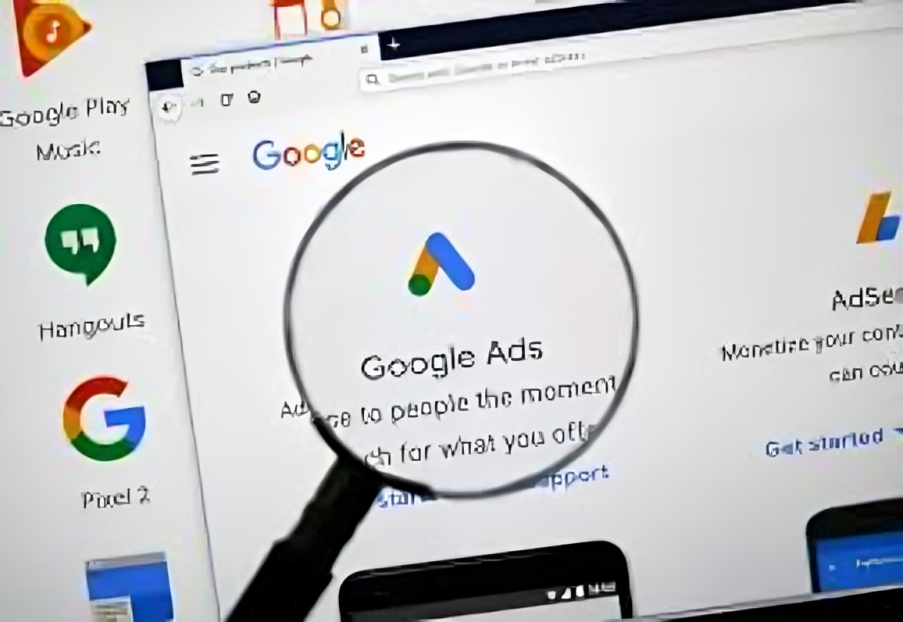
The Key Influence on Pricing in Google Ads: Keywords
Keywords are the foundation of your Google Ads campaigns, and they significantly impact your costs. Highly competitive keywords with high commercial intent often have higher CPCs.
What is the Average CPC in Google Ads?
The average CPC in Google Ads across all industries is $2-$5. However, this can vary greatly depending on your industry and targeting.
What is the Cost-Per-Click For Long-Tail Keywords?
Long-tail keywords, which are more specific and less competitive, typically have lower CPCs compared to broad, high-volume keywords. Targeting long-tail keywords can help you maximize your budget while reaching a more qualified audience.
What Other Google Ads Costs Can I Expect?
In addition to your ad spend, there are other costs to consider when running Google Ads campaigns:
- Professional PPC Management: Hiring a PPC agency or freelancer to manage your campaigns can add to your overall costs. However, their expertise can often lead to better performance and ROI.
- PPC Management Software: Tools like Optmyzr, Wordstream, and TrueClicks can help optimize your campaigns but come with additional subscription costs.
Tips to Maximize Your Google Ads Costs
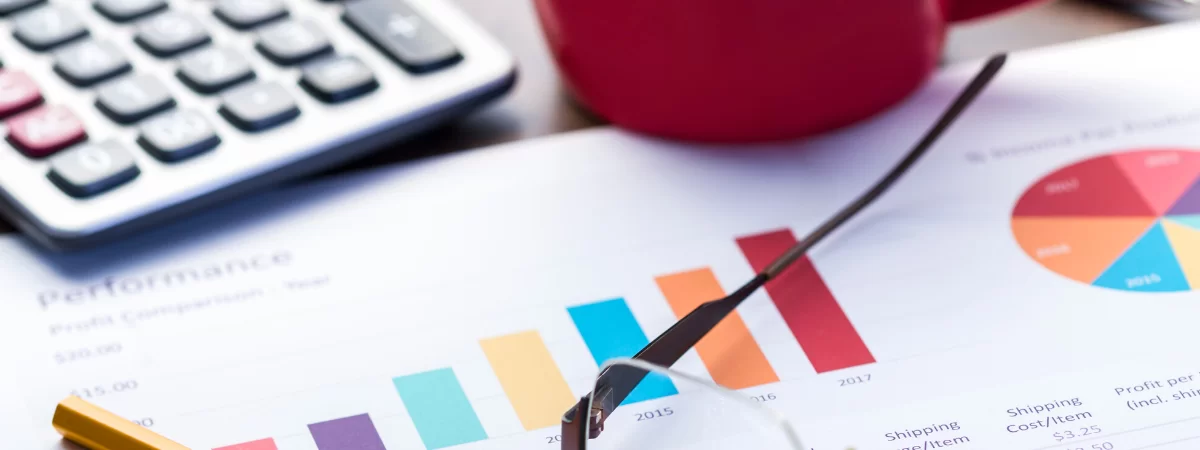
To get the most out of your Google Ads budget, implement these best practices:
- Conduct thorough keyword research to identify high-performing, relevant keywords.
- Optimize your ad copy and landing pages for relevance and user experience.
- Use A/B testing to refine your ads and landing pages for better performance.
- Leverage automation tools like Smart Bidding to optimize your bids and maximize conversion rate.
- Monitor your campaigns regularly and make data-driven optimizations to improve ROI.
Cost of Alternatives to Google Ads

While Google Ads is the largest online advertising platform, there are alternatives to consider:
- Microsoft Advertising (formerly Bing Ads) often has lower CPCs due to less competition.
- Social media advertising on platforms like Facebook, Instagram, and LinkedIn can be cost-effective for targeting specific audiences.
- Display advertising on relevant websites can help build brand awareness at a lower cost than search ads.
FAQ’s:
How Much Are Google Ads? Is Advertising on Google Expensive?
Google Ads costs vary greatly depending on factors like industry, competition, and targeting. While some clicks may cost a few cents, others can exceed $50. The key is to optimize your campaigns for relevance and quality to achieve the best ROI
Are Google Ads Profitable?
Google Ads can be highly profitable when managed effectively. On average, businesses make $2 for every $1 they spend on Google Ads. However, profitability depends on factors like your industry, product, and marketing strategy.
How Much Should You Spend on Google Ads?
Your Google Ads budget should align with your marketing goals and overall ad spend. Small businesses typically spend $1,500 to $8,000 per month, while larger enterprises can invest $50,000 or more.
How Much Does Google Ads Cost Per Month?
The average monthly spend on Google Ads ranges from $1,500 to $30,000+, depending on your business size and marketing goals.
What is the Average CPC For Google Ads?
The average CPC for Google Ads is $2-$5, but this can vary significantly by industry and targeting.
What is the Average Cost Per 1000 Impressions For Google Ads?
The average cost per 1000 impressions (CPM) for Google Ads is $0.51 – $5.00 on both the Google Search Network and Google Display Network.
How Much Do Small Businesses Spend on Google Ads?
Small businesses typically spend between $1,500 to $8,000 per month on Google Ads.
Is Advertising on Google Worth the Cost?
Advertising on Google can be highly effective and deliver a strong ROI when campaigns are well-managed and optimized. However, it’s essential to continually monitor and refine your strategy to ensure you’re getting the best return on your ad spend.
Is SEO Better Than Google Ads?
SEO and Google Ads are complementary strategies that can work together to drive traffic and conversions.
While SEO focuses on organic search rankings, Google Ads provides immediate visibility and allows for highly targeted advertising. The best approach often involves a combination of both tactics.
Conclusion
Understanding the factors that influence Google Ads costs is essential for creating a successful advertising strategy and maximizing your ROI.
By conducting thorough keyword research, optimizing your ads and landing pages, and leveraging best practices for budget management, you can effectively control your ad spend and achieve your marketing goals.
At VH-info, we specialize in helping SaaS businesses navigate the complexities of Google Ads and develop targeted link-building campaigns to drive sustainable growth.
Our experienced team can provide the guidance and expertise you need to optimize your ad spend and achieve the best possible results from your Google Ads campaigns.
Contact us today to learn more about our SaaS link-building services and how we can help you succeed in the competitive world of online advertising.
